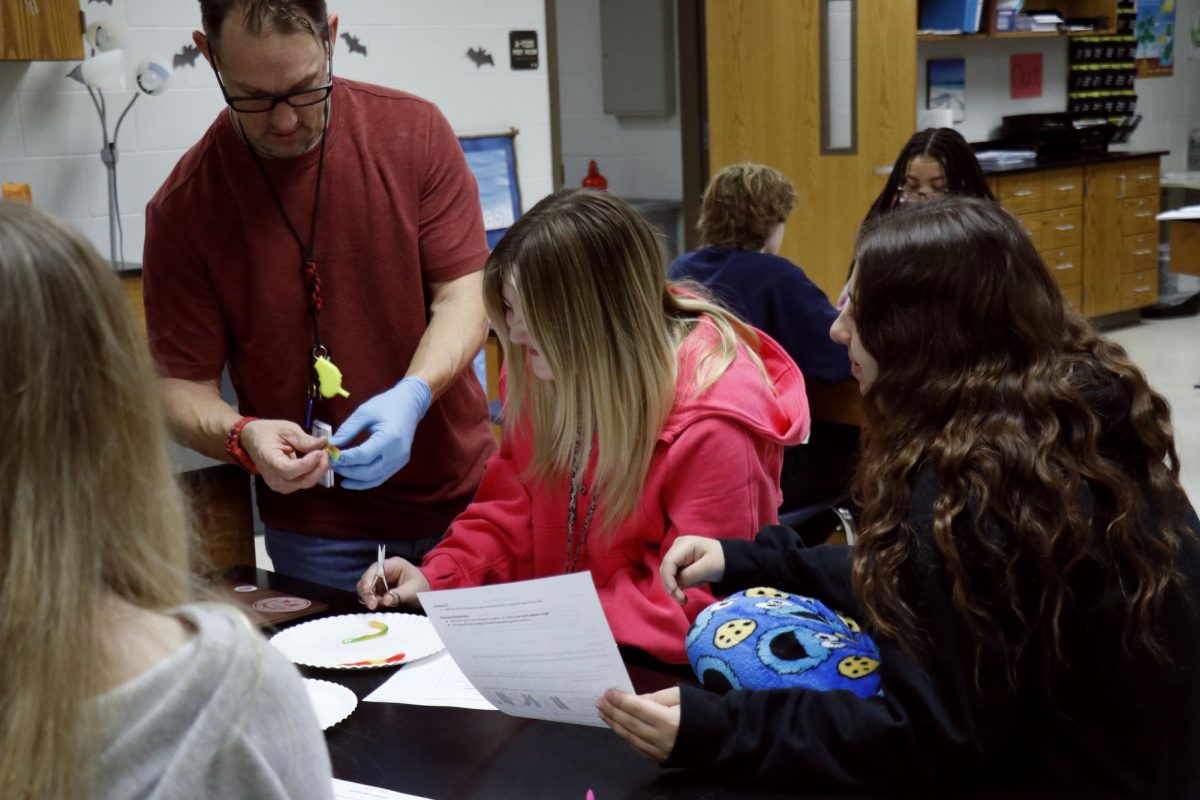Paperwork. Grades. Rude students. Extra duty assignments. Low pay. And low morale.
The 2023 Texas Teacher Poll, an independent study by the Charles Butt Foundation, surveyed teachers from across the state of Texas and detailed the rates of teachers quitting, the reasons why, and solutions to these issues. The study reported that 75% of teachers seriously considered leaving in 2023, a 17% increase from 2020. 64% of teachers say staff shortages contribute to stress as they are expected to take on extra tasks to fill gaps from missing teachers.
This year is English teacher Mackenzie Blank’s second year teaching.
“I have always been passionate about education and the importance of harboring a desire to learn,” Blank said. “I chose English specifically because it has always been my favorite subject, and I felt like I could make the biggest impact as English bleeds so heavily into all other subjects.”
Blank’s job is not without issues, however. She lists the overwhelming workload and teacher villainization as her two biggest grievances with teaching. Teachers experience job creep, the process in which a person is asked to complete responsibilities outside of the agreed scope of their job, at high rates. Students, parents, and even other teachers ridicule them for attempting to do their job.
“We cannot be expected to sit through criticism for just doing our jobs, and we cannot continue to hold so much weight on our shoulders,” Blank said. “There are things that we cannot fix and things that we cannot change.”
Despite the pressure, Blank prefers teaching over another career in education or a career in a different industry entirely.
“I don’t want to say never but as of right now, I can’t imagine working in education and not being in the classroom,” Blank said. “One of the most fulfilling parts of the job for me is learning about who students are, who they want to be, and helping them get there which is much harder to do from a different position.”
The Charles Butt Foundation also reports that has also become a serious issue among teachers. The Texas Teacher Poll reports that 32% of teachers say that support with student discipline would create a more positive culture and environment in the classroom. Advanced Algebra II teacher Julie Gross plans to retire at the end of the school year because worsening student behavior.
“If you cannot attend school and have good behavior, you will not be able to be a successful citizen of the United States,” Gross said. “I think it’s time that the kids need to understand that they get to play their part.”
Gross will retire after the first year she is eligible.
“When you get older, you just don’t have as much patience as we did when we were younger. I noticed that, and it also affects my health,” Gross said. “It’s just too much stress.”
Behavior problems are not unique to just this year, but Gross has noticed more behavioral issues in her on-level Algebra II class. Recently, a student used derogatory language toward her for sending them to their AP’s office for a dress code violation.
“I don’t know how you reach out to 2,600 students and their parents, but there are just things that are non-negotiable,” Mrs. Gross said. “I think that students should know coming in that if one foul word comes out toward the teacher, it’s punishment.”
Throughout her 20-year career, Gross noticed a decline in behavior and accountability from both students and teachers.
“I think that our administration is doing an amazing job. They’re doing the best they can with our 2,600 students,” Gross said. “But if we cannot hold teachers accountable, how can we hold students accountable and keep them all on the same page?”
Although Academic Associate Principal Stephanie Monajami saw the teacher shortage coming because of her experience as a teacher, she never expected it to get this bad. Monajami also believes the shortage will level out, and people will return when the economic bubble bursts. Dr. Stephanie Bonneau, principal, and Mrs. Monajami have filled most empty positions, and those teachers started at the beginning of the spring semester.
“Knock on wood, we might actually have all of our teachers on staff and, so I don’t know maybe if it’s turning around,” Monajami said. “I feel like the economy has a big part in that too since people feel like they can go and make more money in other fields.”
Mrs. Monajami and Dr. Bonneau work side by side to hire teachers and maintain a positive learning and work environment. With Mansfield I.S.D. being a “destination district,” prospective teachers are drawn to teach here.
“If people feel like they can go and make more money elsewhere, then they will,” Monajami said. “Our salary is fairly competitive with other districts in the area and a lot of those other perks and benefits that they provide keep people here and entice new ones to come.”
One way Ms. Monajami and Dr. Bonneau ensure that staff have a good work experience is by sending out a monthly survey about what’s going well and bad, and what admin can do to help fix it. They take the input from the surveys to make changes and improvements to the work culture and environment.
“We definitely try to show our appreciation as often and as genuinely as possible, because most people who went into education knew that they weren’t going to be millionaires,” Bonneau said. “And that’s not why we chose it. We chose it because we want to make a difference because it warms our hearts.”











